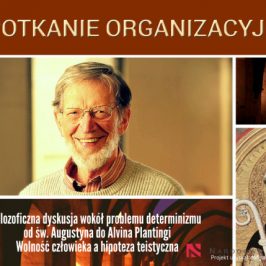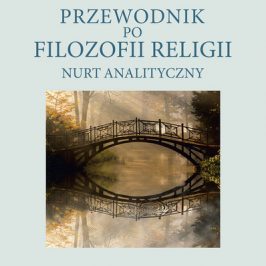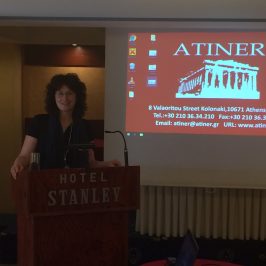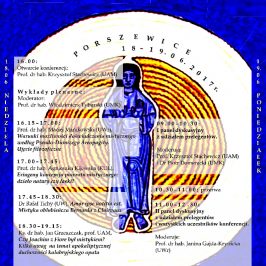Projekt grantu został przygotowany przez dr. Andrzeja Stefańczyka i prof. Agnieszkę Kijewską z Katedry Historii Filozofii Wydziału Filozofii KUL. Do udziału w grancie zamierzamy zaprosić kolegów z innych katedr naszego Wydziału oraz profesorów.
Problem predestynacji ujęty od strony filozoficznej należy potraktować jako głos w dyskusji nad zagadnieniem determinizmu – indeterminizmu czy libertarianizmu, czyli jako pochodną szeroko dyskutowanego we współczesnej filozofii problemu Bożej przedwiedzy w relacji do wolnej woli człowieka. Jednym z fundamentalnych zagadnień będzie omówienie możliwych sensów ludzkiej wolności, tj.
- wolność jako indyferencja albo możliwość alternatywnych kierunków działania;
- wolność jako spontaniczność, zgodność z pragnieniami podmiotu działania;
- wolność jako zachowanie kontroli zarówno nad możliwością dokonania aktu, jak i nad powstrzymaniem się przed jego dokonaniem;
- wolność jako autodeterminacja, czyli dokonana przez działający podmiot selekcja kierunków działania. Ta problematyka zostanie odniesiona do hipotezy teistycznej, aby w ten sposób wyraźniej ująć relację wolnej woli do Bożej (przed-) wiedzy.
W trakcie badań zostaną podjęte m. in. takie zagadnienia jak:
- filozoficzne zagadnienie przyczynowania, wyjaśnianie natury stanów intencjonalnych (przekonania, pragnienia i cele);
- kwestia przewidywalności ludzkich działań i ich społecznych uwarunkowań;
- filozoficzny aspekt zagadnienia zasługi i kary, winy i odpowiedzialności;
- a także warunkujące ten problem zagadnienie relacji umysłu do ciała, konieczności i możliwości, wieczności i czasu, przypadku, dobra i zła.
Tego typu problematyka nie sprowadza się wyłącznie do jednej, określonej dziedziny filozofii, ale staje się przedmiotem dociekań etyki, epistemologii, filozofii społecznej i politycznej, metafizyki, filozofii umysłu, filozofii prawa i nauki czy wreszcie filozofii religii.
Specyfiką tego projektu jest to, że w analizie powyższej problematyki eksponowany jest również aspekt historyczny.
źródło: Wydział Filozofii KUL
The Philosophical Discussion of the Problem of Determinism from St. Augustine to Alvin Plantinga. Human Freedom and Theistic Hypothesis
The much debated in the Christian intellectual tradition problem of divine predestination and its compatibility with human freedom of choice and consequent moral responsibility has to be construed and treated as essentially related to the more fundamental debate between determinism and indeterminism (regarded as a foundation for libertarianism); one contemporary aspect of that debate is discussion in recent philosophy concerning God’s foreknowledge and man’s freedom of choice. In order to elucidate this central problem it will be requisite to distinguish and define diverse senses of human freedom:
- freedom as lack of determination, or possibility to choose alternative courses of action,
- freedom as spontaneity of action, which flows from the subject’s own desires,
- freedom as control over one’s ability to act or to refrain from action,
- freedom as autonomy or self-determination consisting in choosing among the courses of action available to the agent subject.
This discussion of different understandings of freedom will be set in the context of the Theist conception of the Universe, so as to better bring into focus the relationship between free will and God’s (fore-)knowledge.
In the course of the research a number of other problems will be discussed: the philosophical problem of causal activity, the nature of intentional states of mind, such as convictions, desires and motives, the problem of predictability of human actions and their social conditions, the philosophical aspects of the problems of moral guilt, merit, responsibility and punishment and the related aspects of the mind-body problem, necessity and possibility, eternity and temporality, causal necessity and accidentality; good and evil. This extensive spectrum of issues calls for treatment related to many fields of philosophical inquiry rather than one definite domain: ethics, epistemology, social philosophy, philosophy of politics, metaphysics, philosophy of mind, philosophy of law, philosophy of science, philosophy of religion will all contribute to some aspects of the projected research. One other distinctive feature of this project is a strong emphasis given to the historical dimension of the relevant problems alongside their systematic and timeless aspects.
Source: www.philosophy.kul.pl






Dodaj komentarz